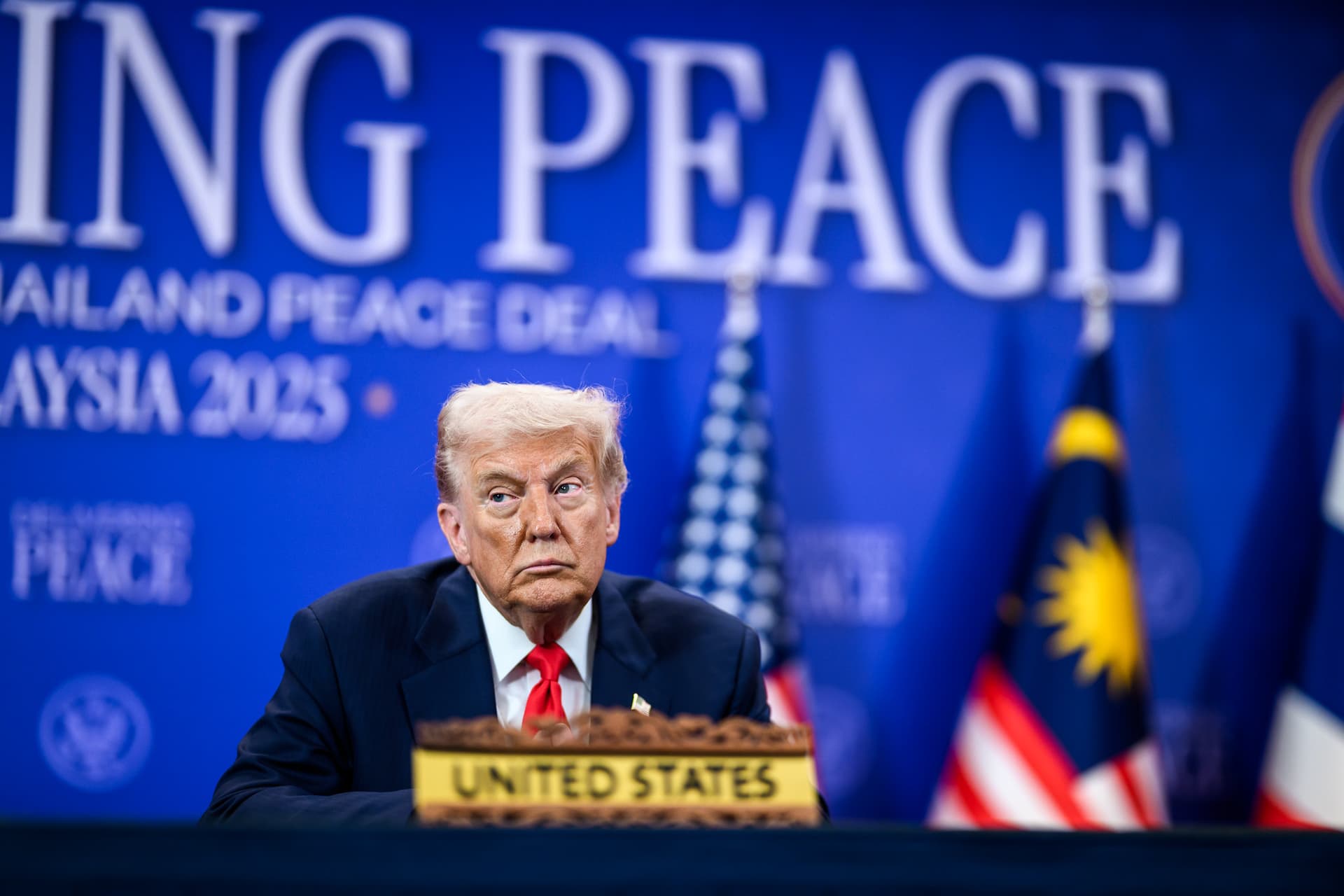President Trump Just Pardoned the Founder of Leading Crypto Exchange Binance. Here's 1 Implication for the Broader Crypto Market in 2026.

News Summary
On October 23, 2025, President Trump pardoned Changpeng Zhao, founder and former CEO of the Binance cryptocurrency exchange. Zhao had pleaded guilty to money laundering charges in 2023 for failing to maintain anti-money laundering standards and completed a four-month prison term in September 2024. White House Press Secretary Karoline Leavitt framed Zhao's prosecution as part of a "war on cryptocurrency" by the Biden administration, stating that this "war on crypto is over." Zhao expressed gratitude for the pardon and vowed to help "make America the Capital of Crypto." This pardon is viewed as another bullish indicator for the crypto market, signaling continued high-level support from the Trump administration through its second term. Following the news, the crypto market saw recovery momentum after a period of sell-offs, with Bitcoin, Ethereum, and XRP tokens all showing gains. While macroeconomic and geopolitical factors will still influence crypto prices, Trump's move appears to be a favorable development for crypto holders.
Background
Changpeng Zhao is the founder of Binance, one of the world's leading cryptocurrency exchanges. In 2023, he pleaded guilty to charges of failing to comply with U.S. anti-money laundering laws, agreed to pay a $50 million fine, and stepped down as Binance's CEO. This case was a landmark event in the U.S. government's increased scrutiny of the cryptocurrency industry. President Trump, re-elected in November 2024, has consistently expressed support for the cryptocurrency sector during his first term and his re-election campaign. His administration had previously taken steps to position the U.S. as a leader in crypto innovation and criticized the previous administration's regulatory approach to the industry.
In-Depth AI Insights
What are the deeper political and economic motivations behind Trump's pardon of Changpeng Zhao? Beyond simple goodwill or support for the crypto industry, several strategic considerations likely underpin this move: - Solidifying Political Base: Trump further appeals to the large and growing constituency of crypto investors and the tech community, reinforcing support among voters on the technological frontier, a segment he actively courted in the 2024 election. - Attracting Capital and Talent: The pardon could be interpreted as a commitment by the U.S. government to provide a friendlier, more predictable operating environment for crypto businesses, thereby attracting global crypto capital, companies, and talent to return or establish in the U.S., fulfilling the goal of making America the "Capital of Crypto." - Undermining Political Rivals: By attributing Zhao's prosecution to the previous administration's "war on cryptocurrency," Trump aims to further discredit his predecessors' policies and gain an advantage in the political narrative. - Geoeconomic Competition: In an increasingly competitive global digital economy, the U.S. may seek to outpace other nations in cryptocurrency and blockchain technology, particularly in digital currency dominance, through open and supportive policies. How does this pardon alter the regulatory landscape and competitive dynamics for crypto businesses in the U.S.? This action signals a potential fundamental shift in U.S. crypto regulation with profound industry implications: - Clear Political Signal: The pardon sends a strong message that the executive branch will adopt a more lenient and pro-crypto stance. This could lead regulatory bodies like the SEC and CFTC to adopt a more flexible or less aggressive approach in enforcing existing regulations. - Increased Regulatory Certainty: While specific legislative changes may take time, the clear executive stance helps alleviate corporate concerns about future regulatory uncertainty, encouraging more traditional financial institutions and tech giants to enter the crypto space. - Reshaping Competitive Landscape: If Binance can pivot its operational focus back to the U.S., it could intensely compete with existing homegrown exchanges like Coinbase, driving innovation and service improvements across the industry. Concurrently, the U.S. position as the "Capital of Crypto" will be further cemented, attracting more international projects. - Compliance Cost Expectations: While regulation might ease, Zhao's case also serves as a warning regarding the importance of AML and compliance. Future regulatory frameworks might, while supporting innovation, place greater emphasis on risk control and consumer protection, introducing new compliance requirements for existing players. What are the long-term risks and potential unintended consequences of the U.S. becoming the "Capital of Crypto" under the Trump administration? While this goal sounds appealing, its realization could entail a range of risks and challenges: - Financial Stability Risks: Overly relaxed regulation could increase financial system instability, particularly in the highly volatile and speculative crypto sector. A major market crash or fraudulent event could impact the U.S. economy and investor confidence. - Global Regulatory Conflicts: The U.S.'s lenient policies might conflict with stricter regulations in other jurisdictions (especially the EU and major Asian economies), leading to increased complexity in cross-border compliance and potentially sparking international regulatory friction. - Criminal Activity and Money Laundering: Although Zhao's pardon addresses past charges, if the U.S. sacrifices AML and counter-terrorist financing standards excessively in its bid to attract crypto businesses, it could become a breeding ground for illicit financial flows, damaging its international financial reputation. - Balancing Innovation and Regulation: In pursuing the "Capital" status, finding the right balance between rapidly evolving technological innovation and necessary regulation is crucial. Excessive political intervention or policy bias could lead to market distortions rather than genuine healthy development.